FOUNDED ON FAMILY
Oklahoma farm shares 100-year heritage of direct-to-consumer beef, faith and family values
by Emily Zahurones
Mar 14, 2023
The core values of faith, integrity, family, hard work, stewardship and feeding the hungry have been hallmarks of Bachman Family Farms for seven generations.
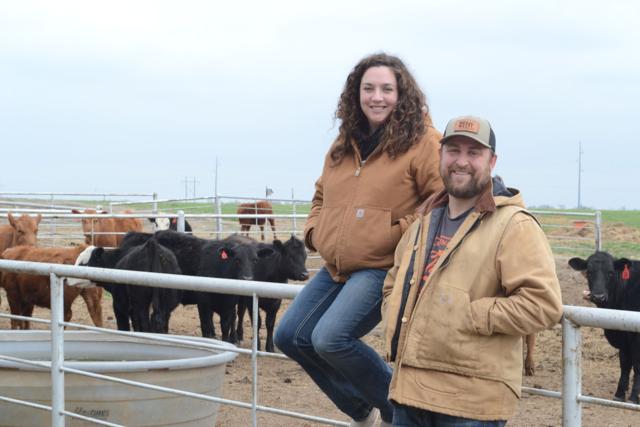
David and Amy Bachman are bringing a fresh vision and new energy for the next generation of their Deer Creek, Oklahoma, operation.
“I started on the combine when I was like, 11. I grew up riding with dad, but he went through the 80s, which was the farm financial crisis, he got a college degree,” Bachman said. “He told all my brothers, there’s three brothers besides me, to get a college degree and have a backup plan.”
Bachman’s backup plan was accounting at Oklahoma State University where he met the love of his life, Amy before coming back to live on the family farm in Deer Creek. David started banking in 2007 while Amy pursued elementary education.
“When I started in banking until about 2018, I worked at the bank as an ag loan officer and commercial loan officer and farmed,” Bachman said. “My farm grew to about 1,000 acres and I got on a bank board of directors, and I was chairing the asset-liability committee.”
His involvement progressively shifted to the farm and by 2020, the Bachmans were farming 4,000 acres, started a direct-to-consumer beef business and raised 100 Red Angus and crossbred cattle.
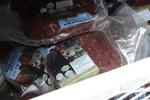
by Emily Zahurones
Growing up in the business
Farming as a family business was a clear part of Bachman’s future from a young age and only continued to grow.
“I bought cows when I was 16 and then I started getting my own land when I was 18. I got an 80 (acres) that dad let me put beans on,” Bachman said. “Then I got another farm. It was 110 acres and that was ‘92. By the end of college, I was at 640 acres.”
The Bachman homestead is over 100 years old and has been thriving under the family name for seven generations. Bachman remarked that direct-to-consumer marketing wasn’t even a new concept – it’s just done a little differently from his great grandfather Merble.
“My great grandpa, he lived up north here. He would every year, periodically, you’d have a fattened calf, probably a steer and he would butcher it. And he would lay it, they didn’t have a pickup truck in those days, it was probably something like a Model T, but he would lay a sheet out in the back seat and then he would lay the meat out,” Bachman said. “He would drive around and sell to people or neighbors or whatever, until he ran out. My grandmother told us that story and it’s like, well, holy cow, we’ve been selling consumer direct grass-fed beef for 100 years.”
The farmhouse was built in 1919 with additions in the 1950s. As time progressed, so did on-farm technologies and equipment. The family’s crops have historically included pumpkins, cotton and wheat.
“My grandpa, after World War II, came back and forth. I think that was basically moldboard plowing. Then they had an open air combine and my great grandfather had run a custom threshing crew,” Bachman said. “They had a self-propelled, cab-less combine and tractors and they plowed everything and planted wheat. That was pretty much the way it was for at least 20 years.”
Fast forward and the family started investing more into the cattle operation side.
“They added stocker cattle, I think pretty well in the 80s, when my dad came back. We started experimenting with no till in about 2000 or so and over the next five to 10 years, we converted entirely no till. That was mainly for the ability to rotate crops, and the reduced need for labor,” Bachman said. “Labor is one of the biggest challenges I think that we face as an industry.”
Looking to the Future
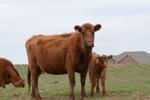
by Emily Zahurones
Bachman Family Farms beef is certified through A Greener World, Certified Grass Fed and Animal Welfare Approved. Today, the couple looks to the future of direct-to-consumer marketing and sustainability.
“We started doing more regenerative stuff in 2016 or so and we added a lot of precision technology in 2012,” Bachman said.
To benefit their constituents, the Bachmans offer over 12 varieties of beef boxes through their online store including hamburger, steak, ribeye, filet, mignon, T-bone, KC Strip and sirloin beef cuts. Box pickup dates are offered to customers in Oklahoma City and future goals include making the product more widely available and higher quality.
“Our hope there is that our percentage Select will go down and our percent Prime will go up,” Bachman said. “We’ll have an overall better customer experience and long-term customer satisfaction.”
Exponential growth is hinged on the idea of combining sustainability and profitability through stacking enterprises. Modern farming operations are called to make more from less. Bachman recommends using the same number of acres to add top and bottom line revenue. Adding intensity by putting cattle on wheat pasture for example saves money in forage and ultimately creates a higher profit margin while using sustainable practices.
“Ultimately, my goal is to make the farm sustainable to the point where working is optional,” Bachman said. “In other words, I would like to make it profitable to a level where it can function without me and I can retire. I would like to get it to where it makes enough money to where we could take off and do missionary work.”
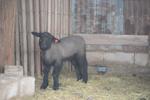
by Emily Zahurones
The couple is highly involved in their church with the worship team, as a deacon and small group leaders. With Amy’s background in Christian ministry and education, core family values are instilled in their children and shared with neighbors and friends. Consumers can connect with the family through a newsletter, recipes, blog posts and an informal tour of what a day on the farm looks like.
The farm serves as an outlet in more than one capacity and the Bachmans are always out in the community to provide a helping hand.
“I would like to add housing and jobs for the community,” Bachman said. “Just have a value-added product that we can outsource or sell here where we retain a lot of the value locally.”
Bringing the brand to life
“One of the cool things is today we’re doing this whole Consumer Direct grass-fed beef model which really couldn’t have been scaled like it is before the advent of Amazon and Instagram,” Bachman said. “The marketing channels were not effective to distribute information as well and as efficiently and as cost effective as it is now.”
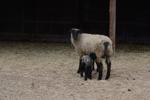
by Emily Zahurones
Marketing tactics have changed since great grandpa Merble’s time. For Bachman, the main focus was to acquire customers through Instagram.
“Just doing the math on that. I was like, ‘Okay, we need like 400 customers and I talked to other producers and that was the number,” Bachman said. “If we just get 400 repeat customers, then we will make all the money we want to make.’ So I was like, ‘Alright, let’s get 40,000 Instagram followers by year end.’”
While the follower goal was cut a bit short, the family still had great online success and were later invited to the Stockyards Steak Out, Oklahoma’s best beef competition as a finalist in 2022.
“We got to meet a lot of people through that and connect with a lot of like people from the Oklahoma Cattlemen’s Association and they paired us with a local celebrity in Oklahoma,” Bachman said. “We were paired with the auctioneer of the stockyards. So that was cool to meet him and talk to different people, our sponsor and just being able to meet other producers.”
Bachman said having an interface with the customer base is of utmost priority moving forward to create a great experience for customers and the family. He plans to capitalize on those values for many years to come.
“Thanks a million,” Bachman said. “It’s so fun and interesting to actually have a connection and meet customers, whereas you used to, we would dump our wheat at the elevator and have no idea where it would go.”

